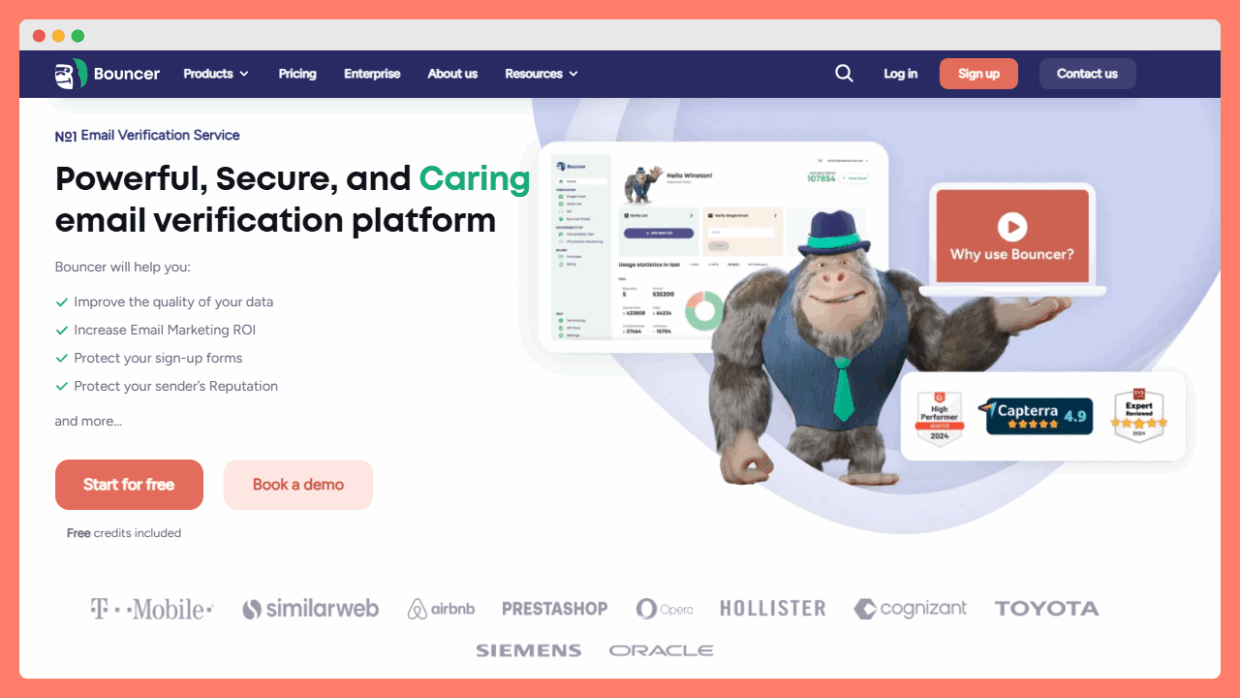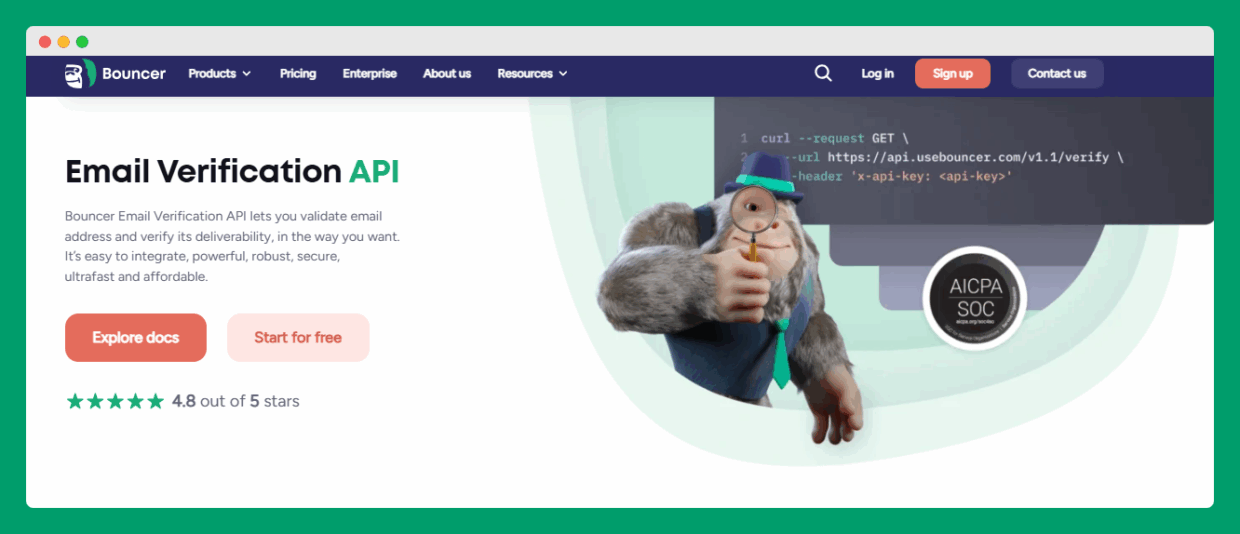Bad email addresses lead to bounce rates, wasted budgets, and missed opportunities. Worse, they can damage your sender reputation and raise legal questions—especially in countries that take privacy very seriously. And in Benelux, privacy isn’t just a regulation—it’s an expectation.
So if you’re verifying emails using a non-European tool, it’s worth asking: is your provider really protecting your data? And what happens when that data crosses borders?
TL;DR
- Benelux businesses need email verification that protects sender reputation and meets strict regional privacy expectations.
- US-based tools introduce cross-border risks after Schrems II, even if they host data in Europe.
- Bouncer, built and hosted in Europe, gives Benelux companies fast, accurate, fully sovereign verification without compliance gaps.
Why email verification is key in Benelux
The Benelux region is home to thousands of fast-growing startups, established enterprises, and digital-first businesses. With such a competitive market, maintaining a healthy sender reputation is vital. But email list decay is real: about 22% of email addresses go bad every year.
If you’re sending to outdated or invalid addresses, you risk high bounce rates, which can damage your deliverability. Worse, it could lead to privacy compliance issues if you’re storing old or inaccurate personal data.
Good email verification tools catch:
- typos and syntax errors,
- outdated or invalid addresses,
- spam traps and disposable emails,
- risky catch-all domains.

Why Benelux businesses need European-based tools
Here’s the thing: plenty of global email verification tools say they’re GDPR-compliant. But compliance isn’t just about ticking boxes. It’s about where your data is processed and who can access it.
The Benelux countries take data protection seriously. Dutch regulators, for example, are known for their proactive stance on privacy enforcement. The recent invalidation of the Privacy Shield framework (Schrems II ruling) makes it risky to use US-based providers that process data in Europe but are subject to US law.
So while tools like ZeroBounce or Kickbox may offer servers in Europe, their US ownership could still expose your data to foreign access. For Benelux businesses that value data sovereignty, that isn’t good enough.
Since the Schrems II ruling in 2020, data transfer from the EU to the US has been under serious scrutiny. The ruling invalidated the Privacy Shield, which many American companies relied on to claim GDPR compliance. That’s why tools headquartered in the US (even if they process data in the EU) can no longer guarantee protection from US surveillance laws.
Benelux regulators, particularly in the Netherlands and Luxembourg, have been proactive in warning businesses against services with transatlantic vulnerabilities. They expect local data handling, clear consent, and traceable compliance.
With Bouncer, you don’t have to second-guess any of that. The entire system (from processing to storage) is based in Europe, and no data ever leaves the continent.
Best Benelux email verification tools
Bouncer: email verification built for Europe

Bouncer is designed for European businesses that prioritize privacy and precision. Its infrastructure is fully based in Europe, so data never leaves the region. For Benelux companies, that means GDPR compliance without compromise.
Key features
- bulk verification: clean up to 250,000 emails at once, complete with bounce estimates and detailed tagging.
- real-time API: integrate email checks directly into your forms or CRM, catching bad addresses before they enter your system.
- toxicity check: flag risky emails connected to blacklists or spam traps.
- data enrichment: add useful business info to your verified contacts.
- catch-all detection: go deeper into tricky domains, including major providers like Google or Microsoft.
- extra tools: AutoClean, Shields, integrations – name it yourself. Bouncer really offers a lot.

Speed and pricing
Bouncer processes up to 180,000 emails per hour, making it ideal for both small and large lists. Pricing starts at €8 for 1,000 emails, with volume discounts and no expiration on credits. You only pay for verified emails, not duplicates or unknowns.
ZeroBounce
ZeroBounce offers features like spam trap detection, email scoring, email activity data, DMARC monitoring, email deliverability consulting, or blacklist monitoring. While it claims GDPR compliance and processes data in Europe, its US headquarters creates potential legal exposure. For privacy-conscious Benelux companies, this could be a risk.
NeverBounce
NeverBounce is known for many integrations, fast verification, and good accuracy (which causes serious problems lately, according to G2 reviews). It’s GDPR compliant, yet it’s still US-based, which introduces the same compliance concerns about foreign data access.
Kickbox
Kickbox is simple to set up and provides a clean API, with standard features like email list verification, API, email spam checker, and disposable email checker. But with US ownership, Benelux businesses need to weigh the potential risks of data access by US authorities.
DeBounce
DeBounce, located in Pune, India, provides affordable verification with free features like disposable email detection, API, or email extractor. It lets EU users store their data on EU servers and the platform is GDPR compliant, but to learn more details, you need to search for information on their website.
Bouncer remains the best choice for Benelux businesses seeking a European-first solution that doesn’t compromise on privacy or performance.

Who benefits from using Bouncer
- startups and SaaS companies: scale quickly without worrying about compliance or deliverability.
- enterprises: maintain trust with large customer bases and strict internal data policies.
- agencies: manage multiple client lists securely and efficiently.

In short: Bouncer fits the Benelux way of doing business
When it comes to email verification, Benelux companies don’t just want “features.” They want safety, trust, and transparency – all wrapped in an efficient tool that works at scale.
Bouncer delivers exactly that:
✅ email verification hosted in Europe
✅ GDPR compliance that’s real—not just claimed
✅ pricing and performance designed for fast-moving teams
✅ a human support team that understands your market
Ready to verify smarter and safer?
Start your first list with Bouncer for free, or get in touch with the team if you need a tailored solution for your agency, SaaS, or enterprise team.
Improve deliverability with Bouncer email verification.


